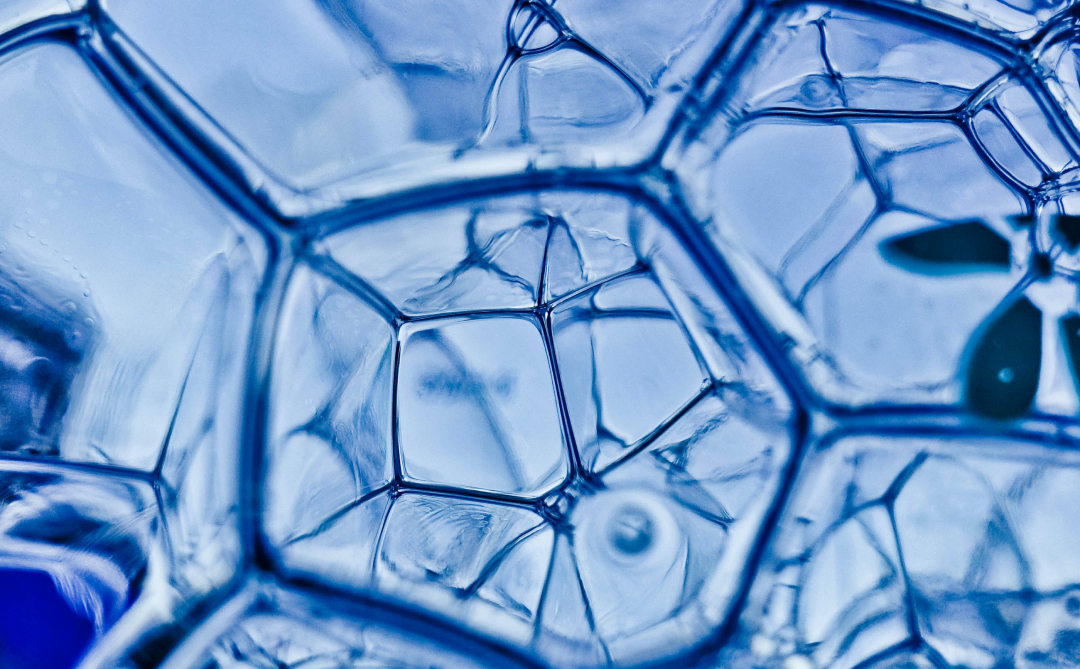Experts / Scientists
February 20, 2024
Epigenetics and Skin Aging: When the Environment Shapes Our Appearance
«Only 15% of our genes dictate our functioning and aging. The remaining 85% are influenced by our behaviors and exposure to internal and external stresses. Therefore, I focus less on age and more on lifestyles and their effects on the skin. At myBlend, a pioneering brand in epigenetics, we rely on our own ability to modulate the functioning of our cells.»
Dr. Olivier Courtin

What is epigenetics?
Epigenetics is the science that studies the influence of the environment on the expression of our genes. Our lifestyle and environment affect the functioning and renewal of our cells. Indeed, the functioning of our cells is guided by the expression of our genes. Epigenetic changes are therefore related to a change in the expression of our genes caused by these environmental stress factors that activate or deactivate them. They impact 80% of the aging of our skin.
In other words, the expression of our genes, which orchestrates cellular renewal, for example, can be modified without altering the genetic code itself, through epigenetic mechanisms. These modifications, induced by environmental factors, have the power to activate or deactivate certain genes, thus playing a predominant role in skin regeneration and aging.
To delve a little further: These modifications in the expression of our genes occur through various mechanisms, such as DNA methylation, which involves adding or removing methyl groups (CH3) to DNA, or modifications of histones, which are proteins around which DNA wraps in the cell nucleus.
What are the factors that impact epigenetics ?
Research conducted on epigenetics has identified environmental factors that generate a form of stress such as:
- Exposure to ultraviolet (UV) rays,
- Air pollution,
- Stressful situations: high mental workload, illnesses, lifestyle pace,
- Dietary habits,
- Tobacco.
These environmental factors deeply mark our DNA without altering the genetic sequence itself.
They are responsible for oxidative stress, the main source of skin aging. Oxidative stress is a condition caused by excessive production of free radicals exceeding the natural defense capabilities of cells, thus causing excessive cellular oxidation, damaging cells and tissues, and consequently affecting our skin.

What are the impacts ?
Epigenetic influences, resulting from the interaction between our environment and our genes, play a crucial role in regulating essential skin functions. They can, for example, modify the expression of genes involved in collagen production, skin elasticity, pigmentation, and repair of UV-related damage. For instance, prolonged sun exposure can induce specific epigenetic changes that accelerate non-heritable skin aging.
In the skin, these modifications lead to the slowing down of key youth cells of the skin (keratinocytes and fibroblasts) – initially invisible:
- Inflamm’aging: a silent chronic inflammation that alters skin components.
- Imbalance of the skin microbiota, essential for skin health and integrity.
- Slowing down of cell renewal, vital for maintaining skin radiance and youthfulness.
Consequences? Structural elements of the skin such as collagen, elastin, or hyaluronic acid – key molecules of the skin’s structure – gradually diminish.
And the damages become visible with:
- Wrinkles & fine lines
- Dull complexion and lack of radiance
- Uneven skin texture and enlarged pores, signs of surface skin alteration
- Loss of skin elasticity
- Dark spots
- Loss of firmness and density
- Dehydration

How to combat these factors ?
Given that it’s not a modification of the DNA sequence but a change in gene expression, these modifications – responsible for 80% of skin aging – are reversible. Thus, we can combat the effects of epigenetics.
Understanding how these environmental factors impact skin epigenetics can pave the way for new prevention strategies. Research has identified specific epigenetic markers associated with skin aging, enabling the development of tailored responses to maintain skin health and youthfulness.
Adopting a healthy lifestyle: balanced nutrition, regular physical activity, limiting harmful substances (alcohol, tobacco, chemicals…), avoiding stress, and ensuring quality sleep. It’s an ideal approach.
These are general well-being measures that contribute to maintaining overall good health and reducing the risks of diseases by positively influencing epigenetics.
At its level, myBlend works to support today’s women and men in taking care of their skin to maintain its health and strengthen it against all these aggressions through a comprehensive lifestyle ecosystem, which offers a new vision of beauty:
- Dietary supplements to complement nutrition and nourish the body from within, with ingredients known for their antioxidant power.
- Highly concentrated skincare to awaken the skin’s vital forces and increase the expression of genes associated with tissue regeneration, thanks to expert molecules developed specifically to meet all the skin’s needs and make it stronger against its environment.
- Technology to go beyond cosmetics, act deeply, and stimulate natural regeneration mechanisms. For example, harnessing the benefits of red and infrared light with a LED mask.
Thus, epigenetics is at the heart of the myBlend philosophy and vision. Be a driver of your future beauty today and challenge the future of your skin.